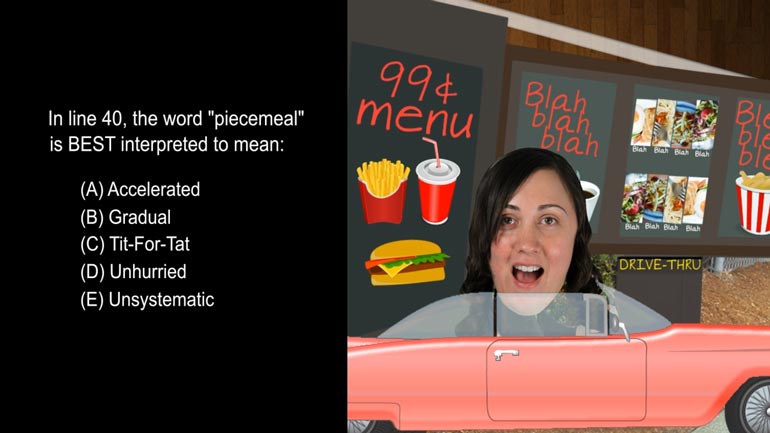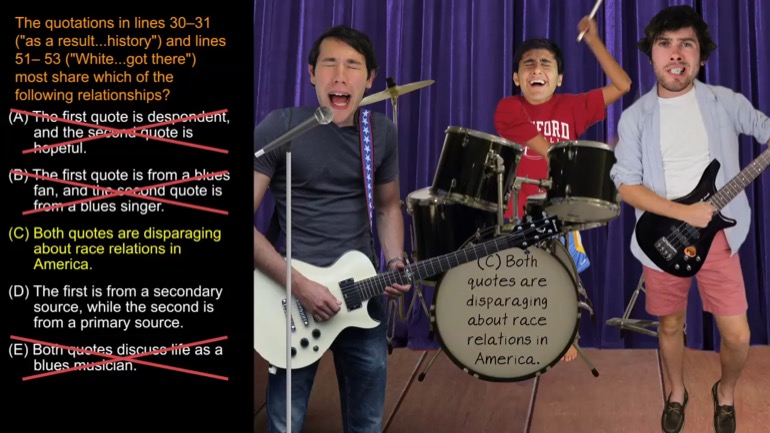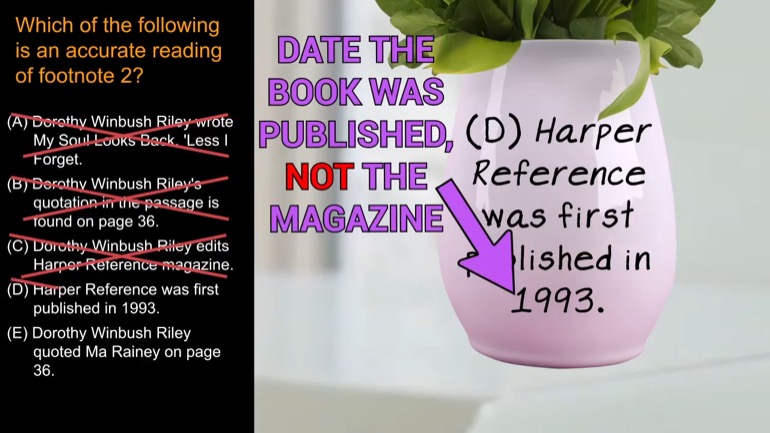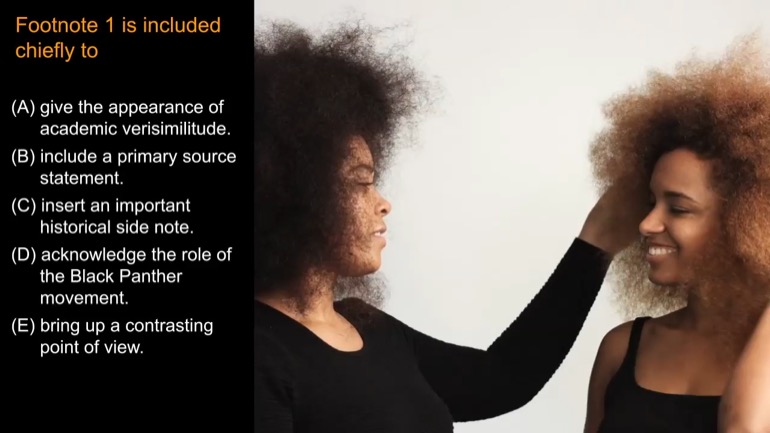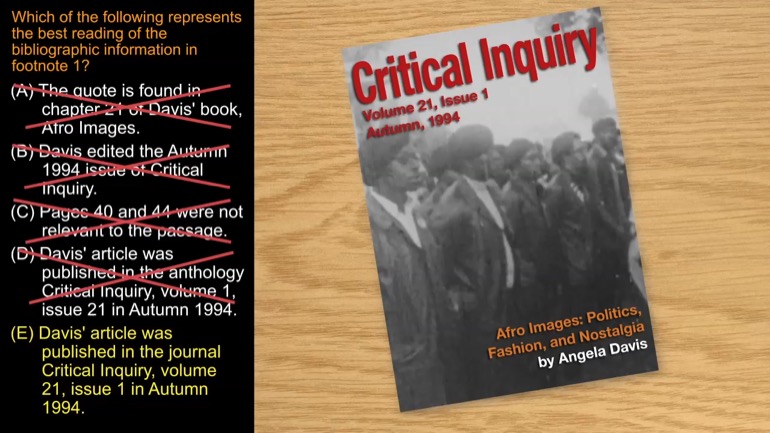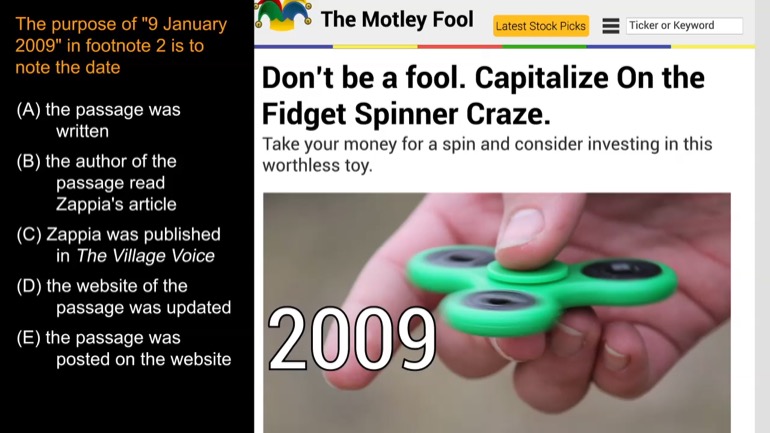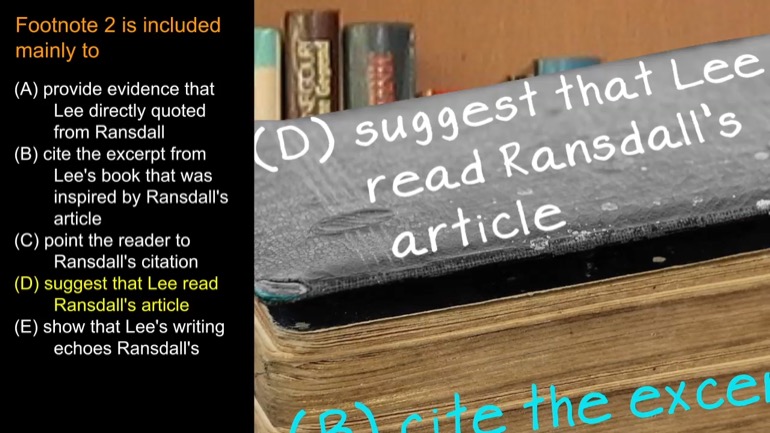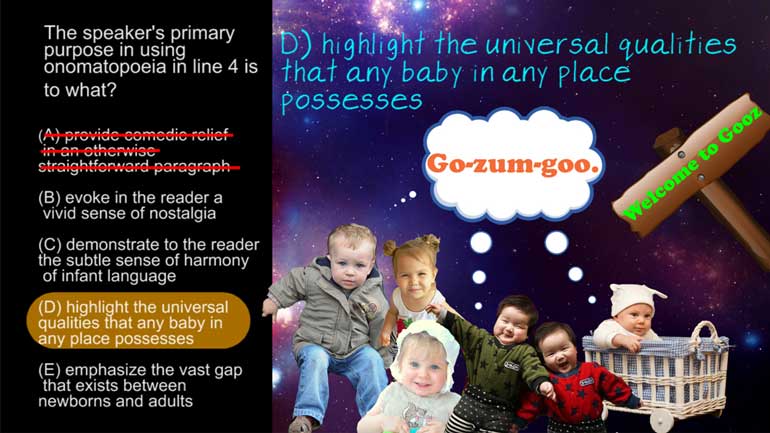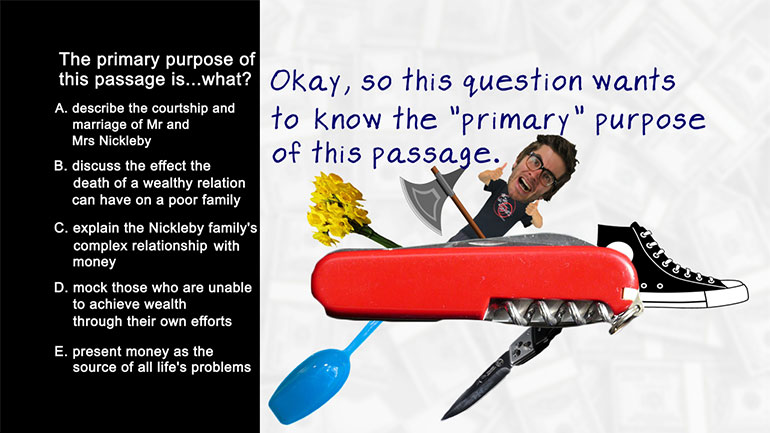ShmoopTube
Where Monty Python meets your 10th grade teacher.
Search Thousands of Shmoop Videos
Reference Skills Videos 7 videos
AP® English Language and Composition: Reference Skills Drill 1, Problem 1. The word "piecemeal" is best interpreted to mean what?
The quotations in lines 30–31 ("as a result…history") and lines 51–53 ("White…got there") most share which of the following relationships?
Which of the following is an accurate reading of footnote 2?
AP English Language and Composition 1.1 Reference Skills 237 Views
Share It!
Description:
AP® English Language and Composition: Reference Skills Drill 1, Problem 1. The word "piecemeal" is best interpreted to mean what?
Transcript
- 00:03
Here's your shmoop du jour, brought to you by Good and Evil. But, let's be real here... mostly Evil.
- 00:30
In line 40, the word "piecemeal" is BEST
- 00:33
interpreted to mean... what? And here are the potential answers...
- 00:41
Hm... well, if we're not sure what piecemeal is... it certainly sounds delicious.
- 00:46
Although... the "piece" part of it makes it sound like it might not be that filling...
Full Transcript
- 00:50
so we hope it tides us over until dinner... But yeah, let's assume we don't know what
- 00:54
the word means, and it's just... unnecessarily whetting our appetite.
- 00:58
Let's take a look at the line in question and see if we can figure out what the word means here.
- 01:02
In fact, let's read the few lines after it as well, to get some sense of context...
- 01:08
A truly scientific philosophy will be more humble, more piecemeal, more arduous, offering
- 01:12
less glitter of outward mirage to flatter fallacious hopes, but more indifferent to
- 01:18
fate, and more capable of accepting the world without the tyrannous imposition of our human
- 01:22
and temporary demands. All right, so... what are we talking about here?
- 01:27
The author is saying that a "truly scientific philosophy" will be humble... we should
- 01:31
know that one, it basically means meek or modest...
- 01:35
...piecemeal -- our mystery word...
- 01:37
...and arduous. The "ard" part sounds like "hard"... and indeed, that's roughly
- 01:42
what the word means. Something grueling and difficult. Like working our way through this question.
- 01:47
The author goes on to say that it will be
- 01:49
"capable of accepting the world without the tyrannous imposition of our human and
- 01:54
temporary demands."
- 01:55
In other words... we human beings want immediate gratification -- we want our answers and
- 02:00
we want them now.
- 02:02
But the "scientific philosophy" shouldn't have to put with us and our silly demands.
- 02:06
It should be able to move at its own pace...
- 02:08
...modestly, meekly, and in a grueling manner. Cobbling all this together... it seems that
- 02:13
piecemeal probably means that something gets done a "piece" at a time.
- 02:20
And if you eat your meal a piece at a time, you will eat... slowly... gradually...
- 02:25
Which is answer B.
- 02:27
D is a nice try, but "unhurried" makes it seem like a leisurely stroll in the park...
- 02:31
"Gradual" is much more on the nose.
- 02:34
And none of the others come close... so yeah, B's our guy.
- 02:37
And while it's nice to be careful and thorough, we don't recommend that you complete your
- 02:41
AP test piecemeal.
- 02:43
They frown on it when you leave midway through the test to grab a donut from 7-11.
Related Videos
AP English Language and Composition: Passage Drill Drill 1, Problem 2. What is the speaker's primary purpose in using onomatopoeia in line four?
AP English Literature and Composition 1.1 Passage Drill 7. The primary purpose of this passage is what?
Wishing upon a star may help you pass your AP English Language and Composition test, but answering this question would be a safer bet.
Take a look at this shmoopy question and see if you can figure out which device the speaker employs the most.
Feel like shifting gears and answering a question about shifting tones? We've got you covered. Take a look at this question and see if you can foll...
